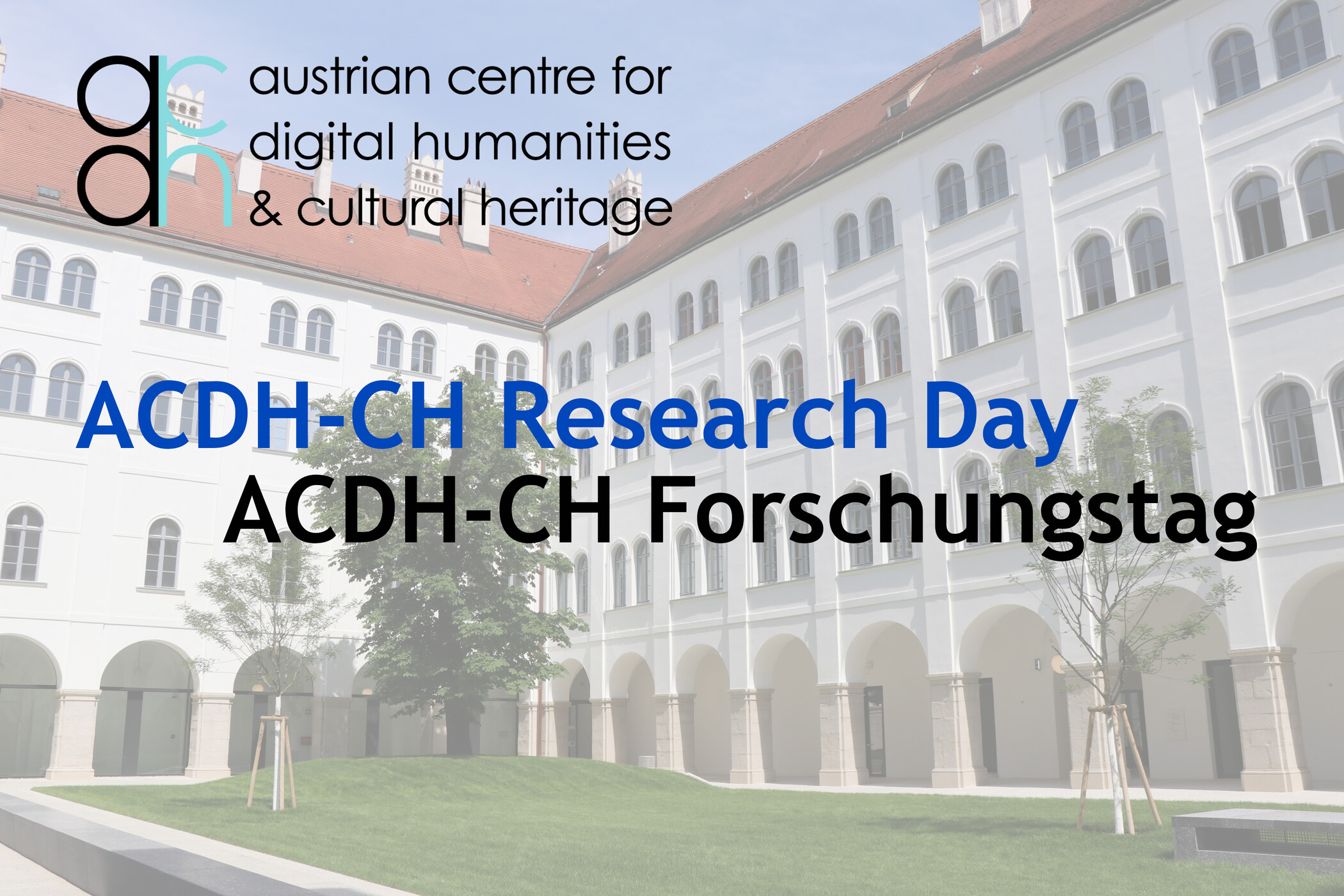ACDH-CH Research Day 4
Language contact and linguistic areas in the light of digital lexicography

The workshop’s aim is to bring together researchers from the ACDH-CH and other institutions, who work on digital dictionaries or other lexical resources and often face theoretical and technical issues regarding the description of language contact phenomena, borrowings, linguistic variation as well as structural similarities and convergencies between varieties belonging to different language families (linguistic areas). Especially the long tradition of (monumental) historical lexicography almost exclusively focused on a specific language or linguistic variety, where several issues of language contact, such as borrowings, were treated poorly or their explanation was restricted to a mere reference on the specialized dictionary of the source language; thus, in many cases difficult lemmata and structures remained unexplained by merely shifting the “problem” to other linguistic and cultural realms and vice versa. For instance, the fruitful cultural and linguistic contact and exchange, which has lasted for millennia between the people of the Eastern Mediterranean, is still lacking a proper and correct documentation in the respective dictionaries due to the compartmentalization of knowledge among the various related academic disciplines.
The workshop aspires to reveal and discuss how up-to-date e-lexicography utilizing baseline encoding and the alignment of digital lexical resources can serve as a crucial tool, not only for reviewing and augmenting existing reference works but also for collecting and exploring linguistic data regarding similarities between languages and varieties beyond the level of “Wanderwörter”, such as structural convergencies in morphology and syntax.
We invite presentations on methodologies, tools, show cases and case studies, as well as descriptions of ongoing or planned research projects from linguistics, lexicology, e-lexicography, and the digital humanities in general, which focus on the creation and management of linguistic data collections and/or their linking with other resources in order to investigate phenomena pertaining to language contact, linguistic areas and variation in synchrony and diachrony.
In particular, we focus on topics regarding the lexical entry compilation and its encoding (XML/TEI-LexO) as well as the interoperability and sustainability of digital lexical data collections and lexicographic resources. Further related topics, such as multilingual technologies, corpus annotation for corpus-based lexicography, specialized vocabularies, entity linking and ontologies are also welcome.
09:15 – 09:30 | Introduction | Organizing team: |
09:30 – 10:00 | Sustainability in terminology and lexicography practice: A data perspective | |
10:00 – 10:30 | Loanwords in the Tocharian Lexicon | |
10:30 – 11:00 | Coffee break |
|
11:00 – 11:30 | Breathing new Life into an Old Inscription | |
11:30 – 12:00 | How Many Words to Record? The Ancient Egyptian Writing System as a Standardising Façade of Linguistic and Lexicographic Diversity | |
12:00 – 13:30 | Lunch break |
|
13:30 – 14:00 | Egyptian Root Lexicon — Online Database | Helmut Satzinger, Danijela Stefanović |
14:00 – 14:30 | (Historical) dialect dictionaries as a means for reconstructing the history of Slavic-German language contact in Vienna | |
14:30 – 15:00 | Sprachdynamische Prozesse zwischen Sprachkontakt und innersprachlicher Variation | |
15:00 – 15:30 | Coffee break |
|
15:30 – 16:00 | Modelling diatopic information in TEI-lex0: the case of the SHAWI Dictionary | |
16:00 – 16:30 | Revisiting the Lexicography of Loanwords in the Eastern Mediterranean: Greek borrowings in Aramaic | Michael Gassner Christina Katsikadeli, Thomas Klampfl |
16:30 | Closing words |
|
Date
6 June 2024
Place
Austrian Academy of Sciences
Bäckerstraße 13
Seminar rooms 1 & 2
1010 Vienna